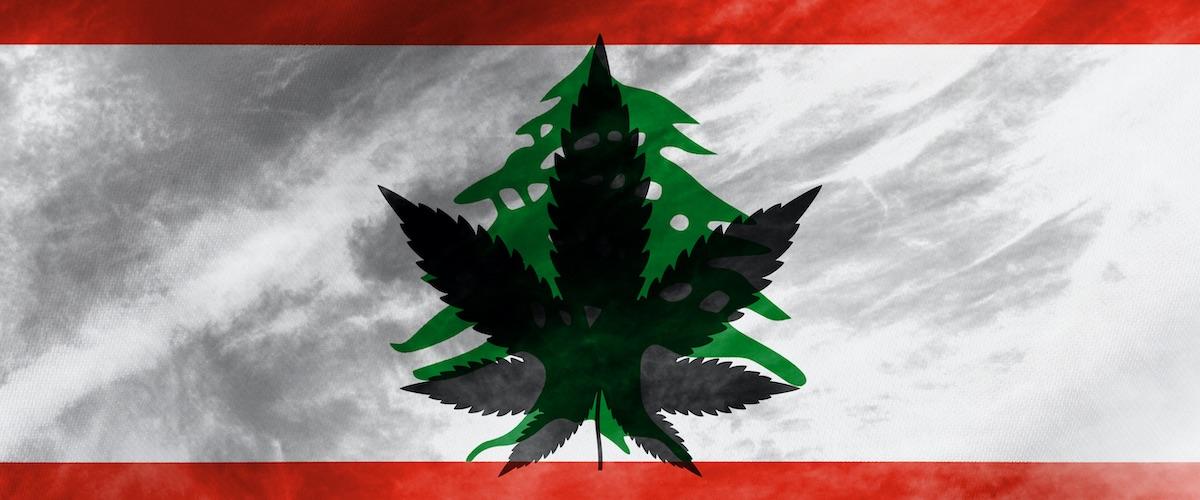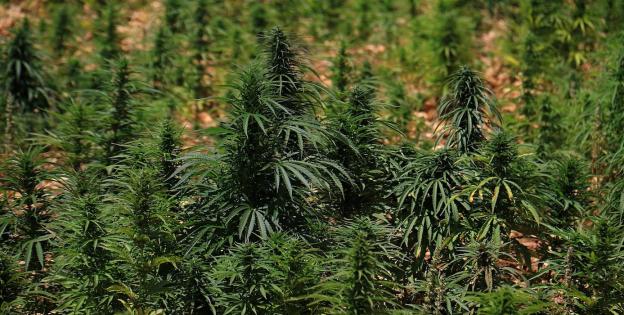- The Parliament of Lebanon has approved the legalisation of medical cannabis, but there is still some scepticism about whether this law will be successfully implemented due to the opposition from Hezbollah and their political allies.
- The objective of this measure is to create an industry for cannabis-based health products, like CBD, as well as an industrial hemp market.

On Tuesday, 21 April, the Lebanese Parliament approved a bill for the legalisation of cannabis cultivation for medical and industrial use. This measure was recommended by the New York-based consulting firm McKinsey & Company before the Coronavirus pandemic struck a devastating blow to this Mediterranean country's weak economy.
This makes Lebanon the first Arab nation to legalise cannabis for medicinal applications, which could generate a yearly export revenue of around 1 billion euros, according to estimates by the North American consulting firm. For a country with one of the highest debt/GDP ratios, the high potential of this income-generating industry can hardly be overlooked.
Lebanese hashish: a really profitable product
According to the United Nations Office on Drugs and Crime (UNODC), Lebanon is the third largest hash resin producer in the world, after Morocco and Afghanistan. For many years cannabis plants have been widely grown in the Beqaa Valley, in eastern Lebanon, which has become a multimillion-dollar business that has helped farmers survive whilst Lebanese hash was flooding the streets in Europe.
But the Beqaa Valley farmers hardly ever benefit economically from their cannabis, as this usually ends up in the hands of drug trafficking mafias, which at the same time have their roots in the depths of the Lebanese political establishment. These growers are now hoping that their work will soon become legal after decades of repression and raids.

This law is also aimed at creating a new agroindustry in the country that will lead to industrial hemp production, in order to obtain hemp fibre to replace plastic and also to be used in textiles, pharmaceuticals, and health products such as cannabis-derived CBD oil.
The new law does not contemplate the legalisation of recreational cannabis, with punishment and sanctions still remaining in force despite activists' requests for an amnesty for most cannabis-related charges. However, cannabis cultivation will be allowed for exportation to countries where this is legal, for instance Germany, Australia, or Canada.
Hezbollah's opposition
The bill was approved in the Lebanese Parliament despite its rejection by the Shia Islamist political party and militant group Hezbollah, who claimed that "cannabis legalisation wouldn't be sufficient to tackle Lebanon's economic issues." This is why there is scepticism about the successful implementation of this law by the government as, in a veiled way, Hezbollah is the main beneficiary of cannabis trafficking in the country. And it seems that the only way this group would accept the ratification of the law is through their direct involvement in its implementation, i.e. by getting a share of the pie.
According to the bill, cultivation would be under strict control. Pharmaceutical companies would provide seeds and seedlings to farmers; and at harvest time all plants would have to be accounted for to prevent any misappropriation. Grow size would be regulated by an authority which would be under the jurisdiction of the presidency of the Cabinet. This would also issue licences for several activities ranging from cultivation to transport, production, storage, sales, and distribution.

Only licence holders will be allowed to work under this new law, which has drawn strong criticism due to the high corruption and bribery potential that this entails. Because the only source of funding for this authority won't come from the government's budget but from the licensing fees. This could in turn create a conflict of interest: it could lead to a monopoly which would allow politicians to control hashish production, distribution and exportation at the expense of producers.
Riddled with a climate of corruption and insecurity for decades, Lebanon's national debt exceeds 80 billion euros. Last month, the country failed to pay its debt for the first time in history, since it is still facing a serious shortage of foreign exchange. Last autumn, the economy was on the brink of collapse, which led to nationwide demonstrations against the government, finally resulting in the resignation of the prime minister Saad Hariri and the formation of a new, more technocratic cabinet.





Comments from our readers
There are no comments yet. Would you like to be the first?
Leave a comment!Did you like this post?
Your opinion about our seeds is very important to us and can help other users a lot (your email address won't be made public).